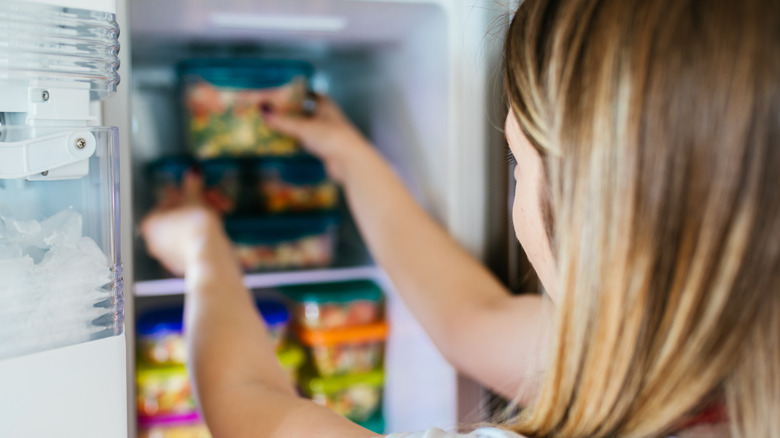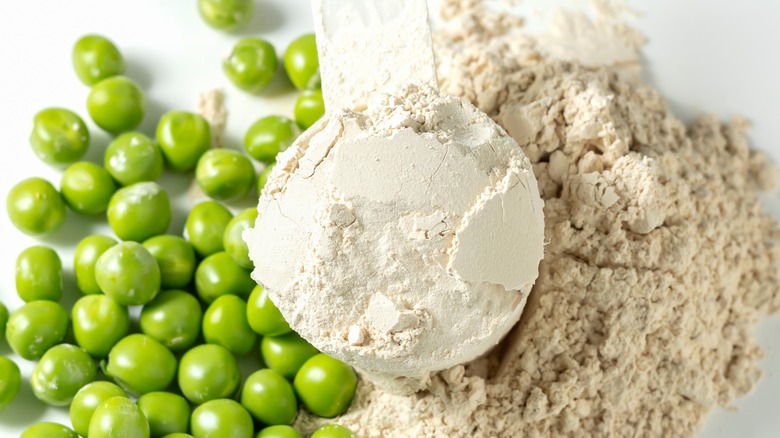The Frozen Vegetable That Has More Protein Than Milk
Adding more protein to your diet isn't just for building and maintaining muscle. Protein can help you reach your weight loss goals by helping you to feel fuller longer while boosting your body's metabolism and fat burning. It can protect your bones as you age and lower your blood pressure (per Healthline).
Many good protein sources come from animals. But that's not much help if you're trying to limit your meat consumption to lower your saturated fat intake. You also might grow tired of eating chicken and fish. People who are trying to lower their cholesterol might need to limit their egg intake to just one a day. And those who are lactose intolerant can't get their protein from dairy milk or cheese.
Vegans probably already know that you can get plenty of protein each day from plants. In particular, one protein source is probably already in your freezer: peas. A cup of cooked green peas has 8.6 grams of protein, compared to a cup of skim milk, which comes in slightly less at 8.4 grams of protein.
The protein in peas
Peas are actually legumes, not vegetables. That's why they have a good bit of protein. There are two types of split peas: green and yellow. Green peas, which you'll typically find frozen, are sweeter than their yellow counterparts. Yellow peas are typically used in Indian dal.
You've probably noticed pea protein powder added to energy bars, cereals, and veggie burgers as a vegan alternative to whey. Pea protein has all your necessary amino acids compared to rice protein or hemp, but it's a bit low in methionine, an important antioxidant. Therefore, it's probably not a good idea to rely on pea protein as your main source of protein, according to the American Institute for Cancer Research.
Pea protein powder is derived from yellow peas and comes in various forms: pea protein isolate, pea protein concentrate, and textured pea protein (via Cleveland Clinic). Pea protein isolate is rich in protein and amino acids, making it beneficial for weight loss and muscle building. It contains more protein than a cup of cooked peas. Pea protein concentrate, though not as protein-dense, contains added carbohydrates or fats. Textured pea protein is used in the production of vegan and vegetarian foods.
Peas are healthy overall
Even though pea protein might be a nice change in your morning smoothie, don't rule out adding regular peas to your other meals throughout the day. The Physicians Committee for Responsible Medicine calls peas the new power food for their nutritional benefits. Not only are they high in protein, but you'll also get 8.8 grams of fiber in a cup of peas to improve your gut health and keep you feeling full.
Green peas are also low in saturated fat, cholesterol, and salt. They are packed with essential nutrients including vitamin A, vitamin C, vitamin B6, vitamin K, manganese, thiamin, folate, and magnesium. Peas have a low glycemic index, which means they have less of an impact on your blood sugar levels. Green peas also contain beneficial compounds such as isoflavones, lectins, and saponins, which have protective effects against cancer (via Medical News Today).
You can add some green peas to boost the protein in a salad, or you can cook green peas for a few hours in a slow cooker. Just add some fresh herbs like mint or basil, then top with feta cheese, extra virgin olive oil, and lemon juice.



